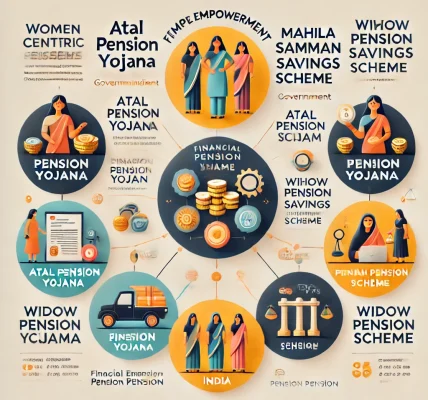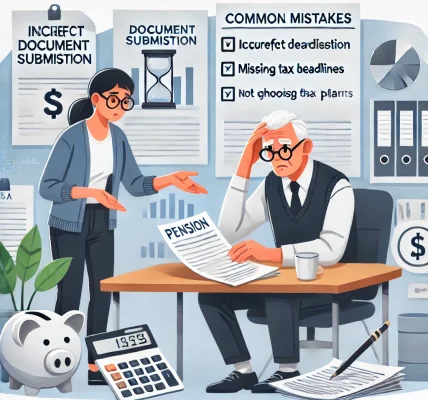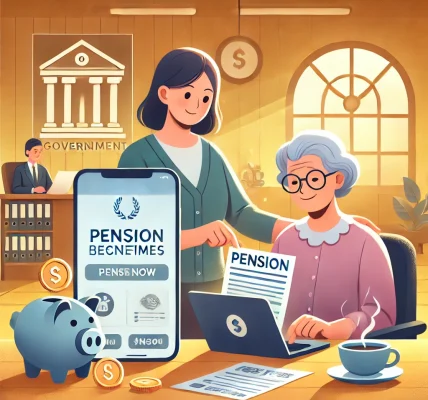Introduction
Being a single parent comes with financial responsibilities, including planning for retirement. Without a second income or spousal support, securing a stable future becomes a priority. In India, the government has introduced various pension schemes to support single parents, ensuring they have financial security in their later years.
This guide explores the best pension plans available for single parents, eligibility criteria, benefits, and tips on securing long-term financial stability.
Why Do Single Parents Need a Pension Plan?
Single parents often bear the sole responsibility of raising children, managing household expenses, and saving for the future. A pension plan helps in:
- Ensuring financial security post-retirement
- Providing a steady income source
- Reducing dependency on children or relatives
- Managing medical and living expenses
- Building a financial cushion for emergencies
Government Pension Schemes for Single Parents
The Indian government provides multiple pension schemes to assist single parents in securing their financial future. Below are some of the most beneficial plans:
1. Atal Pension Yojana (APY)
The Atal Pension Yojana (APY) is a government-backed pension scheme designed for low and middle-income groups, making it ideal for single parents looking for long-term financial stability.
- Eligibility: Open to individuals aged 18-40 years.
- Contribution: Monthly contributions depend on the pension amount selected.
- Benefits: Guaranteed pension ranging from ₹1,000 to ₹5,000 per month after 60 years.
- Government Contribution: The government co-contributes for eligible individuals.
- Tax Benefits: Contributions to APY are eligible for tax deductions under Section 80CCD(1B).
2. National Pension System (NPS)
The National Pension System (NPS) is a voluntary retirement savings plan regulated by the Pension Fund Regulatory and Development Authority (PFRDA).
- Eligibility: Open to individuals aged 18-70 years.
- Contribution: Minimum contribution is ₹500 per month for Tier I accounts.
- Benefits: Offers market-linked returns, flexibility in withdrawal, and an option for lump sum withdrawal at 60 years.
- Tax Benefits: Tax deductions of up to ₹2 lakh under Section 80CCD(1) and 80CCD(1B).
3. Employees’ Pension Scheme (EPS)
If you are a salaried employee, you are likely covered under the Employees’ Provident Fund (EPF), which includes EPS benefits.
- Eligibility: Available to employees working in the organized sector.
- Contribution: Automatically deducted from the employee’s salary.
- Benefits: Pension benefits start at 58 years, with an option for early withdrawal at 50 years.
- Family Pension: If the pensioner passes away, the benefits are extended to the spouse and children.
4. Indira Gandhi National Widow Pension Scheme (IGNWPS)
For single mothers who are widows, the Indira Gandhi National Widow Pension Scheme (IGNWPS) provides financial assistance.
- Eligibility: Women aged 40-59 years from Below Poverty Line (BPL) families.
- Benefits: Monthly pension of ₹300 to ₹500 (varies by state).
- Additional Support: State governments often provide additional pension benefits.
5. Public Provident Fund (PPF)
Though not a pension scheme, the Public Provident Fund (PPF) is an excellent long-term savings plan with guaranteed returns.
- Eligibility: Open to all Indian citizens.
- Contribution: Minimum deposit of ₹500 per year; maximum of ₹1.5 lakh per year.
- Lock-in Period: 15 years (extendable in 5-year blocks).
- Tax Benefits: Fully tax-free under Section 80C.
- Returns: Interest is compounded annually and backed by the government.
How to Choose the Best Pension Plan as a Single Parent?
Selecting the right pension plan depends on several factors:
- Financial Goals – Decide whether you want a fixed pension (APY, EPS) or a market-linked one (NPS).
- Risk Appetite – If you prefer guaranteed returns, go for PPF or APY. For higher returns, consider NPS.
- Retirement Age – If you need an early retirement option, ensure your plan allows withdrawals before 60.
- Tax Benefits – Look for schemes that provide maximum tax deductions.
- Dependents’ Security – Choose a plan that offers survivor benefits for your children.
Additional Financial Tips for Single Parents
- Start Early – The earlier you start, the lower your contribution and the higher your returns.
- Diversify Investments – Invest in a mix of government pension schemes, PPF, and mutual funds.
- Consider Health Insurance – A good health insurance plan ensures medical expenses don’t drain your savings.
- Automate Savings – Set up automatic deductions to ensure consistency in pension contributions.
- Nominate Your Children – Always update nominee details in pension plans for seamless benefits transfer.
Common Challenges and How to Overcome Them
- Limited Disposable Income: Start with small contributions and increase them as income grows.
- Lack of Awareness: Stay updated on government pension schemes and their benefits.
- Emergency Withdrawals: Keep a separate emergency fund to avoid dipping into pension savings.
Frequently Asked Questions (FAQs)
Q1. Can single parents apply for more than one government pension scheme? Yes, single parents can enroll in multiple schemes like NPS, APY, and PPF for diversified retirement savings.
Q2. Is there a special pension plan for divorced parents? There is no specific pension plan for divorced parents, but they can apply for NPS, APY, and PPF to secure retirement income.
Q3. What happens to my pension if I remarry? If you receive benefits from widow pension schemes like IGNWPS, the benefits may discontinue upon remarriage. However, APY, NPS, and PPF remain unaffected.
Q4. Can I withdraw from my pension plan early?
- NPS: Partial withdrawals allowed after 10 years.
- APY: No premature withdrawal unless in case of death or critical illness.
- PPF: Partial withdrawals allowed after 5 years.
Q5. What is the safest pension plan for single parents? The Public Provident Fund (PPF) is one of the safest, as it offers government-backed, tax-free returns.
Conclusion
As a single parent, planning for retirement is crucial for financial independence and stability. Government pension schemes like NPS, APY, and EPS offer excellent retirement security, while PPF provides a risk-free savings option. By making informed decisions and planning early, single parents can ensure a secure and stress-free future.




